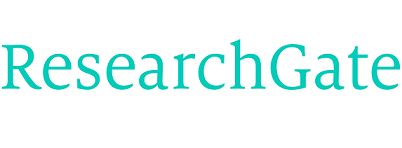Abstract: This study evaluated the Civil Aviation Authority of the Philippines' (CAAP) compliance with Republic Act No. 11032, also known as the Ease of Doing Business and Efficient Government Service Delivery Act of 2018. The study involved thirty-two (32) participants, comprising of twenty-two (22) CAAP employees, including office or administrative assistants, compliance officers, information officers, medical personnel, airmen examiners, accounting and collection personnel assigned in different offices that handle clients and ten (10) aviation stakeholders including pilots, examinees and liaison officers who availed the services of CAAP.
The study employed the quantitative research method. Quantitative research involved the collection and analysis of numerical data to provide answers to the research questions. For the research design, this study used a descriptive design employing a cross-sectional survey. The survey was conducted at the Civil Aviation Authority of the Philippines (CAAP). Convenient random sampling ensured a representative sample from CAAP and its clients. The primary data collection tool was a survey questionnaire designed based on the research questions. Data collected from the survey were analyzed using descriptive and inferential statistics.
Frequency and Percentage provided data on the participants’ profiles that were relevant to the information the researcher deemed important to obtain. The percentage method was utilized to arrive at an accurate estimate of the participation rate. Weighted Mean was used to calculate the average frequency of the responses. A four-point Likert Scale was used to determine the compliance of CAAP with the requirements of the Ease of Doing Business and Efficient Government Service Delivery Act of 2018.
Furthermore, Kruskal-Wallis H Test was used to determine if there was a significant difference in the participant’s adherence to CAAP’s compliance with the Ease of Doing Business and Efficient Government Service Delivery Act of 2018 requirements when grouped by age and length of service. The Mann-Whitney U Test was used to determine the significant difference in the participant’s adherence to CAAP’s compliance with the Ease of Doing Business and Efficient Government Service Delivery Act of 2018 requirements when grouped by gender and occupation. Lastly, ranking was used to prioritize and rank the factors, aspects or variables identified in the study.
The study revealed a relatively young workforce within CAAP, potentially influencing their familiarity with digital processes and government service expectations. Gender distribution was balanced, with more male participants. Most participants were government employees, reflecting the prevalence of public sector workers. The length of service varied, providing diverse perspectives on the implementation of the Act.
Key findings included room for improvement in the Citizen's Charter, unclear utilization of Public Assistance Desks which are vital in government agencies, adherence to standard government service delivery, and issues with the Zero Contact Policy that limits the interaction between the processor and the client. Significant age-related differences were observed in Citizen's Charter compliance, while gender and occupation showed no significant differences.
The challenges encountered by CAAP in aligning its procedures based on the Act, included adapting to evolving technology and industry regulations and cultural and organizational barriers. These challenges raised by the participants were timely and relevant since government procedures and guidelines continue to improve and evolve over the years. Internal procedures and office policies should be reviewed and monitored to ensure compliance with all government laws and regulations.
The recommendations included age-sensitive engagement strategies that would cater to diverse age groups, establishing a Public Assistance/Complaint Desk tasked with the sole purpose of providing assistance to the stakeholders, implementing the Zero Contact Policy to limit interaction and avoid red tape, and prioritizing automation to streamline procedures and enhance customer service delivery.
Title: Civil Aviation Authority of the Philippines Compliance with the Ease of Doing Business and Efficient Government Service Delivery Act of 2018
Author: Jenilyn Ramos Salvador
International Journal of Novel Research in Marketing Management and Economics
ISSN 2394-7322
Vol. 10, Issue 3, September 2023 - December 2023
Page No: 82-94
Novelty Journals
Website: www.noveltyjournals.com
Published Date: 22-December-2023






